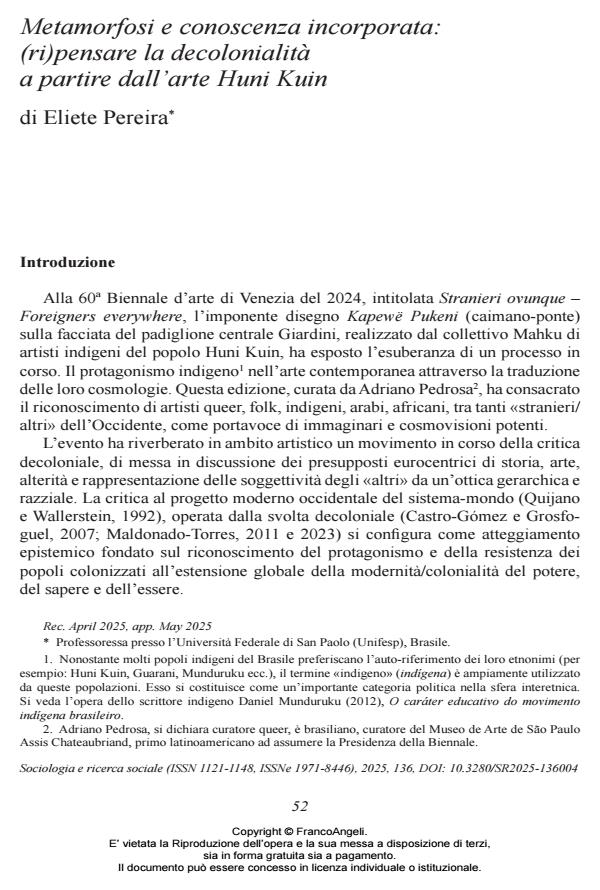Metamorfosi e conoscenza incorporata: (ri)pensare la decolonialità a partire dall’arte Huni Kuin
Titolo Rivista SOCIOLOGIA E RICERCA SOCIALE
Autori/Curatori Eliete Pereira
Anno di pubblicazione 2025 Fascicolo 2025/136
Lingua Italiano Numero pagine 19 P. 52-70 Dimensione file 360 KB
DOI 10.3280/SR2025-136004
Il DOI è il codice a barre della proprietà intellettuale: per saperne di più
clicca qui
Qui sotto puoi vedere in anteprima la prima pagina di questo articolo.
Se questo articolo ti interessa, lo puoi acquistare (e scaricare in formato pdf) seguendo le facili indicazioni per acquistare il download credit. Acquista Download Credits per scaricare questo Articolo in formato PDF

FrancoAngeli è membro della Publishers International Linking Association, Inc (PILA), associazione indipendente e non profit per facilitare (attraverso i servizi tecnologici implementati da CrossRef.org) l’accesso degli studiosi ai contenuti digitali nelle pubblicazioni professionali e scientifiche.
This article delves into the concept of decoloniality as an epistemic shift, analyzing the notions of «metamorphosis» and «embodied knowledge» present in the worldview of the indigenous Huni Kuin people of Brazil. Through theoretical analysis that brings together the aesthetic decolonial turn and counter-coloniality, the text examines how the aesthetic forms of Huni Kuin art from the MAHKU collective (Movement of Huni Kuin Artists) represent a type of embodied knowledge. This knowledge is founded on the transit between species and on metamorphosis, central elements in their cosmologies. These notions offer important interpretive keys for understanding the ecological specificities of indigenous thought and their relationship between humans, non-humans, and nature, pushing us to rethink decoloniality as an epistemic opening towards nonWestern knowledge.
Eliete Pereira, Metamorfosi e conoscenza incorporata: (ri)pensare la decolonialità a partire dall’arte Huni Kuin in "SOCIOLOGIA E RICERCA SOCIALE " 136/2025, pp 52-70, DOI: 10.3280/SR2025-136004